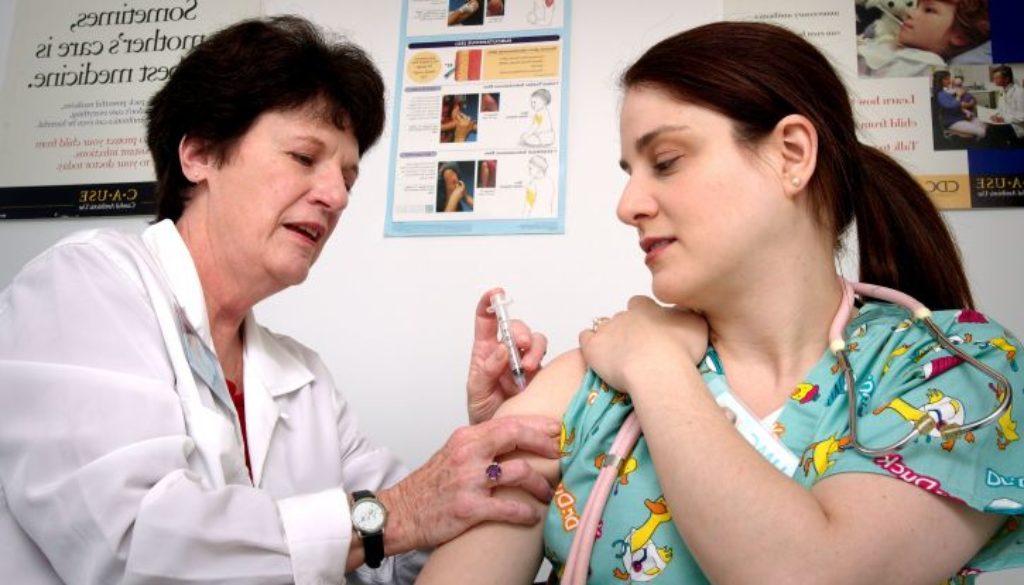FDA: Faulty Devices Had “Minimal” Impact on Xarelto Study
By David Hilzenrath, Project on Government Oversight
The FDA said the use of faulty blood testing devices appears to have had “minimal” impact on a clinical trial of the blood thinner Xarelto that FDA head Robert Califf co-chaired before joining the agency.
“Our analyses so far indicate that effects on strokes or bleeding, including bleeding in the head, were minimal,” FDA spokeswoman Deborah Kotz said by email Tuesday evening in response to questions from POGO.
“These effects were very unlikely to have altered our determination in 2011 that Xarelto was a safe and effective alternative to warfarin”—a generic drug in use since the 1950s—“in patients with atrial fibrillation,” Kotz said.
Questions about the manufacturer-sponsored clinical trial for the drug have put FDA staff in the awkward position of, in effect, having to assess the performance of their boss – the FDA commissioner – who previously led clinical trials for drug companies.
The FDA has also been reviewing its own performance because it approved Xarelto for patients with atrial fibrillation—a heart condition that can cause clots and strokes—based on the affected trial. The fact that the trial used so-called INRatio testing devices was disclosed to the FDA before it issued the 2011 approval.
POGO reported last year that the Xarelto trial, known as ROCKET AF, suffered from a potentially crippling flaw: It relied on blood testing devices with a history of delivering inaccurate measurements
This week, the maker of the devices announced that, at the FDA’s request, it was withdrawing them from the market. (See related story: Faulty Blood Testing Devices to Be Withdrawn from Market)
If the INRatio devices malfunctioned in the clinical trial, POGO reported last year, they could have skewed the results. Based on a notice posted on the FDA website in 2014, the devices had a tendency to malfunction in a way that could have made Xarelto look better than warfarin, the standard of comparison.
POGO also reported that INRatio devices had been the subject of FDA warnings before the Xarelto trial began and that Califf co-chaired the committee responsible for designing the clinical trial. POGO noted that erroneous blood test results could have harmed patients by prompting doctors to give them too much or too little warfarin, thereby putting them at heightened risk of bleeding or developing blood clots.
“Use of the affected devices may . . . cause severe or life-threatening injuries, including death,’ the December 2014 notice said.
For months, the FDA has been trying to determine how, if at all, the faulty devices affected the ROCKET AF trial. Califf has been recused from the matter, agency spokeswoman Katie Conover has said.
The stakes are high. Xarelto is a big money-maker for drug makers Johnson & Johnson and Bayer, and the clinical trial itself was a major investment involving more than 14,000 subjects in 45 countries over almost four years.
On Tuesday, after the maker of the INRatio devices, a company called Alere, announced that it was withdrawing the machines, POGO asked the FDA for an update on the agency’s review of ROCKET AF.
Kotz’s comments are the most substantive POGO has received from the agency on the subject since POGO began asking the FDA last year. However, they are not necessarily the FDA’s last word on the subject.
“The FDA’s investigation on the use of Xarelto is ongoing, and we will communicate additional information as it becomes available. The FDA believes that Xarelto continues to provide an important health benefit when used as directed,” Kotz said.
Kotz did not provide any further details about the FDA’s analysis.
The FDA’s European counterpart, the European Medicines Agency (EMA), which also approved Xarelto for atrial fibrillation based on the affected trial, reassessed the trial for the same reasons and issued its findings in February.
The European regulator found extensive inconsistencies in the trial data. As POGO has reported, when readings taken by the suspect testing devices—the measurements used in the trial—were compared to parallel measurements taken by a central laboratory, “discrepancies of potential clinical relevance were rather frequently observed,” the EMA found.
The discrepancies occurred “approximately in 35% of the estimations,” the EMA report said.
Yet, the EMA said the discrepancies did not change its assessment of Xarelto’s risks and benefits.
The EMA comparison was possible because at two points in the years-long clinical trial—weeks 12 and 24—when blood tests were run using the so-called “point of care” INRatio devices, blood samples were also sent to a central laboratory for analysis. However, according to the trial protocol, INRatio tests were supposed to have been performed at least every four weeks to make sure trial subjects in the control group were receiving appropriate doses of warfarin.
The comparisons at weeks 12 and 24 varied and shed no light on what happened during the rest of the trial.
As POGO reported, some medical experts doubt that anyone could determine how the faulty devices affected the overall results short of going back in time and repeating the trial.
The executive committee of the clinical trial essentially acknowledged that point in a letter to the editor published on July 6 on the website of The New England Journal of Medicine. Taking into account the comparative data from weeks 12 and 24, Manesh Patel and co-authors writing on behalf of the committee said their reassessment was “consistent with the originally reported overall trial results.”
“However, we acknowledge the limitations of these analyses,” they added. “To be fully informative, we would need to provide paired central-laboratory and [INRatio] values throughout the trial, and these values are not available.”

